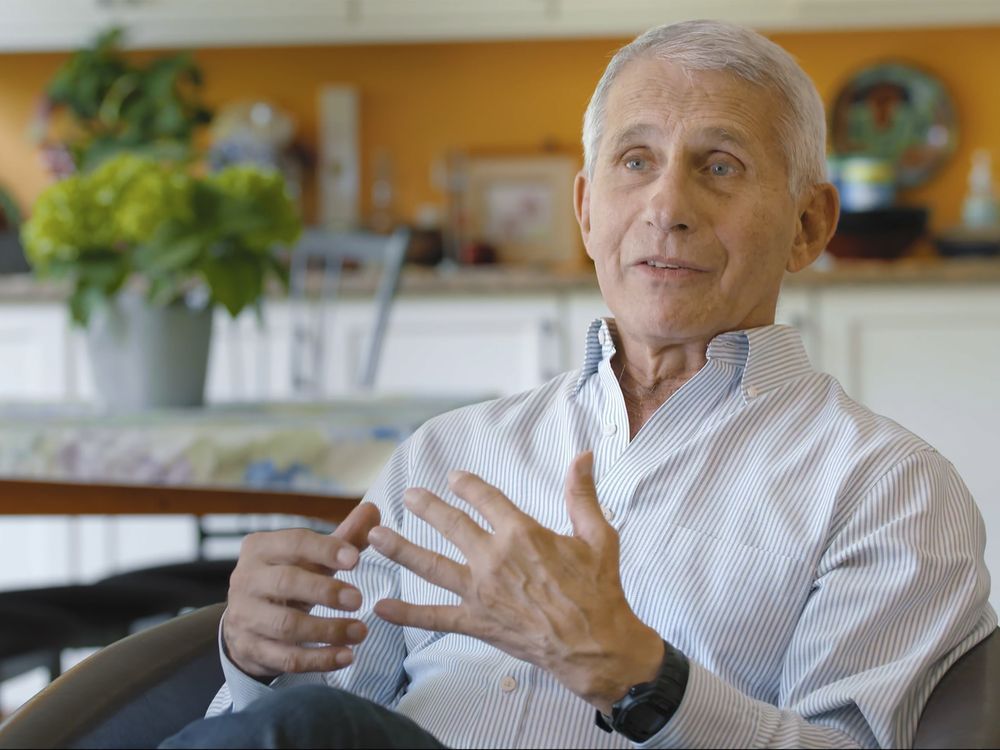Fauci adviser deleted emails. Congress demanded to know why
Author of the article:Washington Post
Washington Post
Dan Diamond, McKenzie Beard
Published May 23, 2024 • 3 minute read
At the peak of the coronavirus pandemic, the longtime National Institutes of Health official encouraged colleagues to evade federal records requirements, claiming that shifting sensitive covid conversations to personal email and deleting messages would protect his high-profile former boss Anthony S. Fauci and others from unwanted scrutiny.
It was spectacularly bad – and wrong – advice. And it brought the wrath of Congress down on NIH adviser David Morens Wednesday.
Sen. Rand Paul (R-Ky.) on Wednesday morning said he’d asked the Justice Department to look into Morens’s decision to delete emails about NIH-related covid matters, which could be a federal crime. Three hours later, the GOP-led House covid panel released a report filled with private messages where Morens bragged about evading Freedom of Information Act requirements and dismissed lab-leak proponents as conspiracy theorists. By Wednesday afternoon, Republicans were calling Morens a liar to his face and suggesting he could face perjury charges.
“You wrote in an email that you have never said anything that you ‘would not be happy to defend before a congressional committee,'” said Rep. Brad Wenstrup (R-Ohio), who chairs the House covid panel and led yesterday’s hearing with Morens. “Today, sir, is that day.”
If Morens hoped for cover from Democrats, he didn’t get it. Lawmakers like Rep. Debbie Dingell (D-Mich.) blistered him, saying while there was no proof he and Fauci were trying to cover up a laboratory leak, he had diminished trust in his agency and broader public health.
“It is not anti-science to hold you accountable,” Rep. Raul Ruiz (D-Calif.), the panel’s top Democrat, said.
Morens said he was embarrassed, particularly by the shame he’d brought on NIH. “I can’t put the toothpaste back in the tube,” he said. But his flailing defense – as he stumbled over how email works and struggled to articulate his fears about the very real threats to Fauci and others – only frustrated and confused lawmakers in both parties.
“Sir, I think you will be haunted by your testimony today,” said Rep. Kweisi Mfume (D-Md.), comparing it to a bad movie plot. “It doesn’t make a lot of sense to many of us, certainly not to me.”
What made Congress so angry: trying to hide his messages on sensitive issues, such as the possible lab origins of the coronavirus, which raised only more questions about what he was trying to hide.
“i learned from our foia lady here how to make emails disappear after i am foi’d but before the search starts, so i think we are all safe,” Morens wrote in a February 2021 email that was widely mocked Wednesday.
“Dr. Morens, who’s your FOIA lady? Is it Hillary Clinton?” Rep. Marjorie Taylor Greene (R-Ga.) asked.
Even Morens laughed at that.
The emails also included his strategizing with longtime friend Peter Daszak, the embattled head of EcoHealth Alliance, who had a bad day of his own. (Health and Human Services officially suspended Daszak from federal contracts Wednesday, one week after halting funding to EcoHealth, a research organization tied to the Wuhan Institute of Virology.)
Morens’s troubles went beyond covid emails. In one private message, he appeared to mock then-CDC Director Rochelle Walensky for wearing “a skirt” and saying he’d tried to diminish her to Fauci.
That angered Rep. Mariannette Miller-Meeks (R-Iowa), a physician and former state health director, who said Morens was channeling a chauvinistic attitude that should be gone from medicine.
“I disagree with her policies. And it had nothing to do with whether or not she wore a skirt,” Miller-Meeks told me after the hearing.
Rather than shield his former boss, Morens’s emails have instead created a new problem for Fauci, who’s set to testify in front of the House in early June.
When a Washington Post reporter struck up a hallway conversation with Morens, his lawyer Timothy D. Belevetz interrupted and told The Post to “scram.” (The Post reminded Belevetz that the Capitol’s hallways are a public space.)
Asked questions by the same reporter after the hearing, Morens said, “My lawyer says I shouldn’t be talking to you, so I’m not,” he said.

 torontosun.com
torontosun.com
Author of the article:Washington Post
Washington Post
Dan Diamond, McKenzie Beard
Published May 23, 2024 • 3 minute read
At the peak of the coronavirus pandemic, the longtime National Institutes of Health official encouraged colleagues to evade federal records requirements, claiming that shifting sensitive covid conversations to personal email and deleting messages would protect his high-profile former boss Anthony S. Fauci and others from unwanted scrutiny.
It was spectacularly bad – and wrong – advice. And it brought the wrath of Congress down on NIH adviser David Morens Wednesday.
Sen. Rand Paul (R-Ky.) on Wednesday morning said he’d asked the Justice Department to look into Morens’s decision to delete emails about NIH-related covid matters, which could be a federal crime. Three hours later, the GOP-led House covid panel released a report filled with private messages where Morens bragged about evading Freedom of Information Act requirements and dismissed lab-leak proponents as conspiracy theorists. By Wednesday afternoon, Republicans were calling Morens a liar to his face and suggesting he could face perjury charges.
“You wrote in an email that you have never said anything that you ‘would not be happy to defend before a congressional committee,'” said Rep. Brad Wenstrup (R-Ohio), who chairs the House covid panel and led yesterday’s hearing with Morens. “Today, sir, is that day.”
If Morens hoped for cover from Democrats, he didn’t get it. Lawmakers like Rep. Debbie Dingell (D-Mich.) blistered him, saying while there was no proof he and Fauci were trying to cover up a laboratory leak, he had diminished trust in his agency and broader public health.
“It is not anti-science to hold you accountable,” Rep. Raul Ruiz (D-Calif.), the panel’s top Democrat, said.
Morens said he was embarrassed, particularly by the shame he’d brought on NIH. “I can’t put the toothpaste back in the tube,” he said. But his flailing defense – as he stumbled over how email works and struggled to articulate his fears about the very real threats to Fauci and others – only frustrated and confused lawmakers in both parties.
“Sir, I think you will be haunted by your testimony today,” said Rep. Kweisi Mfume (D-Md.), comparing it to a bad movie plot. “It doesn’t make a lot of sense to many of us, certainly not to me.”
What made Congress so angry: trying to hide his messages on sensitive issues, such as the possible lab origins of the coronavirus, which raised only more questions about what he was trying to hide.
“i learned from our foia lady here how to make emails disappear after i am foi’d but before the search starts, so i think we are all safe,” Morens wrote in a February 2021 email that was widely mocked Wednesday.
“Dr. Morens, who’s your FOIA lady? Is it Hillary Clinton?” Rep. Marjorie Taylor Greene (R-Ga.) asked.
Even Morens laughed at that.
The emails also included his strategizing with longtime friend Peter Daszak, the embattled head of EcoHealth Alliance, who had a bad day of his own. (Health and Human Services officially suspended Daszak from federal contracts Wednesday, one week after halting funding to EcoHealth, a research organization tied to the Wuhan Institute of Virology.)
Morens’s troubles went beyond covid emails. In one private message, he appeared to mock then-CDC Director Rochelle Walensky for wearing “a skirt” and saying he’d tried to diminish her to Fauci.
That angered Rep. Mariannette Miller-Meeks (R-Iowa), a physician and former state health director, who said Morens was channeling a chauvinistic attitude that should be gone from medicine.
“I disagree with her policies. And it had nothing to do with whether or not she wore a skirt,” Miller-Meeks told me after the hearing.
Rather than shield his former boss, Morens’s emails have instead created a new problem for Fauci, who’s set to testify in front of the House in early June.
When a Washington Post reporter struck up a hallway conversation with Morens, his lawyer Timothy D. Belevetz interrupted and told The Post to “scram.” (The Post reminded Belevetz that the Capitol’s hallways are a public space.)
Asked questions by the same reporter after the hearing, Morens said, “My lawyer says I shouldn’t be talking to you, so I’m not,” he said.

Fauci adviser deleted emails. Congress demanded to know why
At peak of the coronavirus pandemic, the National Institutes of Health official encouraged colleagues to evade federal records requirements










